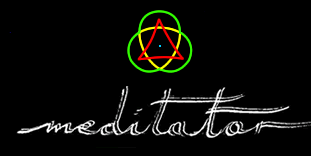FROM MEDITATOR.ORG
1. Remember the breath
Without interfering be aware of your breath at all times.
2. Consider externally beyond the self
Extend all your senses to their maximum beyond your familiar world
without allowing the attention to be trapped by what is perceived.
3. Actively investigate
Do not seek solace or fall asleep being peaceful and quiet.
Explore further for the joy of it without expectations or chasing
after results.
4. Neither accept nor reject
Consider everything that is offered to you with equal preference
whether this is pleasant or unpleasant.
5. Don't criticize yourself or others
Preserve inner silence don't break it. Instead of looking for faults aim to uphold the mutual integrity of yourself and others. Learn from mistakes and don't repeat them.
6. Don't act out negative emotions
"Least said, soonest mended". Clinging to anger, self pity, disapointment, depression, jelousy etc, distorts perception and stops you from seeing things as they really are.
To rid yourself from unnecessary excessive emotions - positive or negative- allow them to pass through you unhindered until they disappear, like the wind going through a cobweb leaving it clean and unaffected. Compose yourself and start afresh with no regrets for what is done is done.
7. Only speak and act when necessary
Using right effort the smallest action of can bring about cataclysmic changes and in a natural way. Power is frugal so when the time comes to acting or speaking be efficient, brief and to the point.
8. Information is not Knowledge
“Those who know do not speak. Those who speak do not know”.
(Lao Tzu)
Information and language records the thoughts and experiences of
humans which is useful for learning, interacting and communicating
with one another. Knowledge though is of a different order because of its connection to ‘Being’. It is often found encoded within some form like that of a ‘seed’. Placed within fertile ground, it rots and in time releases its potential, growing, producing fruit and taking on a variety of shapes according to its nature and the external conditions it finds itself in. There are always custodians of Knowledge who preserve the integrity of forms, sowing seeds and opening ways to the Unknown. They should be respected and supported.
9. Take responsibility for your own actions only.
'What is my purpose?', 'What is moving me?' Each one of us is connected to all levels within creation and also carries a unique dream and purpose they were born to fulfill. If one doesn't at least try to know one's heart regularly, how can one assume responsibility, or handle such a task ?
One may not always agree with the decisions others make but one must always respect that others have the right to choose, even if their choice appears wrong to us. So perhaps it's best not to interfere since sooner or later each of us will have to reap the cosequences of own actions.
If someone needs your help, nurse them for a while if you can until they are back on their feet again then let them go and move on.
10. Personal Growth is a matter of free choice
The desire to evolve is a natural drive. Possibly our only human right is
to become more aware but very few exercise it. Very few rid
themselves of what is unnecessary and returning to their true centre
then work to raise their awareness to the highest peak. Most dig themselves deeper and deeper into a hole by choosing to indulge in the comforts of their material and familiar world. Can you choose or do you feel powerless like a slave? Who binds you?
To find the energy to live in a bigger world ask: "Where is Life before Death?" and then move in that direction.
11. Respect All Beings
Ultimately all beings carry a spark of awareness that derives from the
same source, and so we are all equal even though we all have different tasks to fulfill. So our differences should be a cause for mutual respect.
Exercise:
Practice these principles one per day until they have all become an
integral part of you.
~~~~~~~~~~~~~~~~~~~~~~~~~~~~~~~~~~~~~~~~~~~~~~~~~~~~~~~~~~~
Inspired by the 'Saros Rules of Conduct' at
'The Foundation for Perpetuating Knowledge'
You may freely quote this article in full provided that you state the
source where you got it from.
~~~~~~~~~~~~~~~~~~~~~~~~~~~~~~~~~~~~~
Copyright Byron Zeliotis
| 